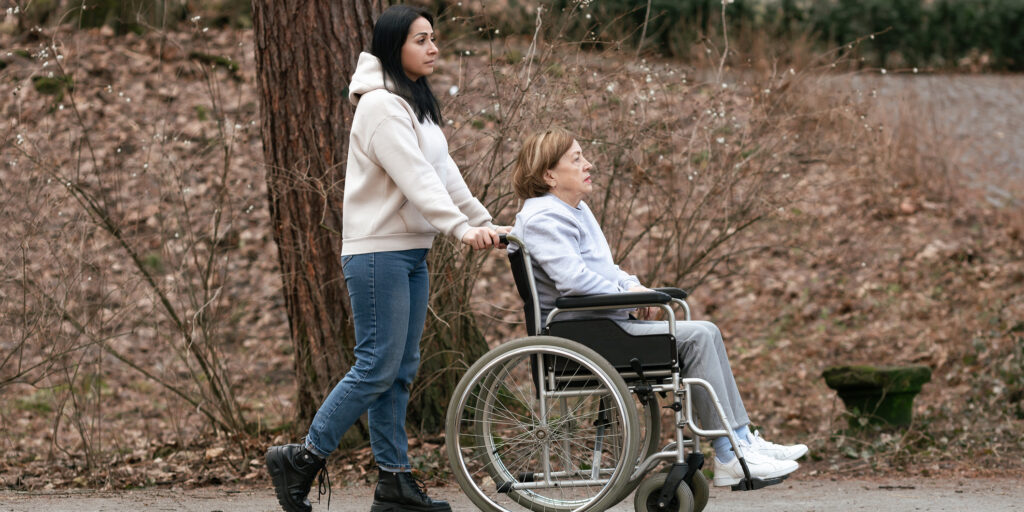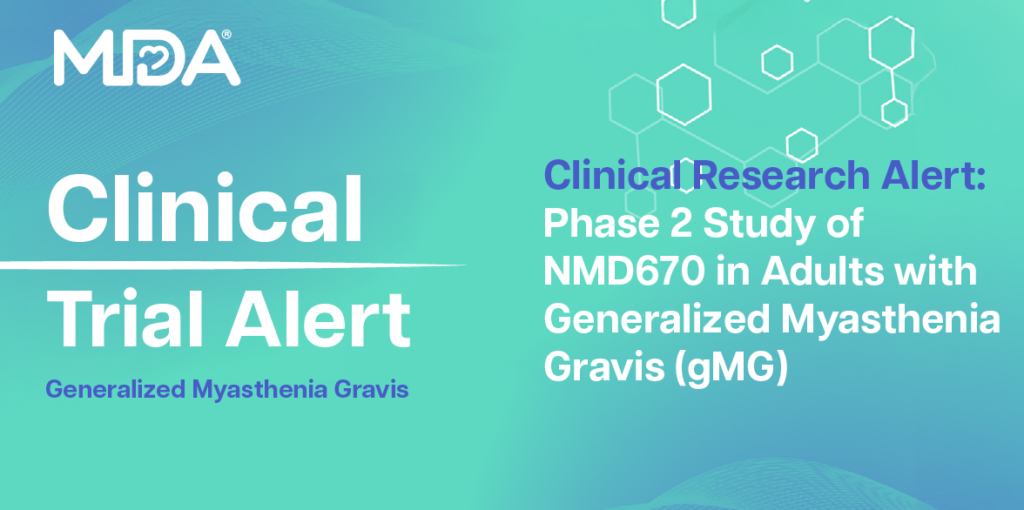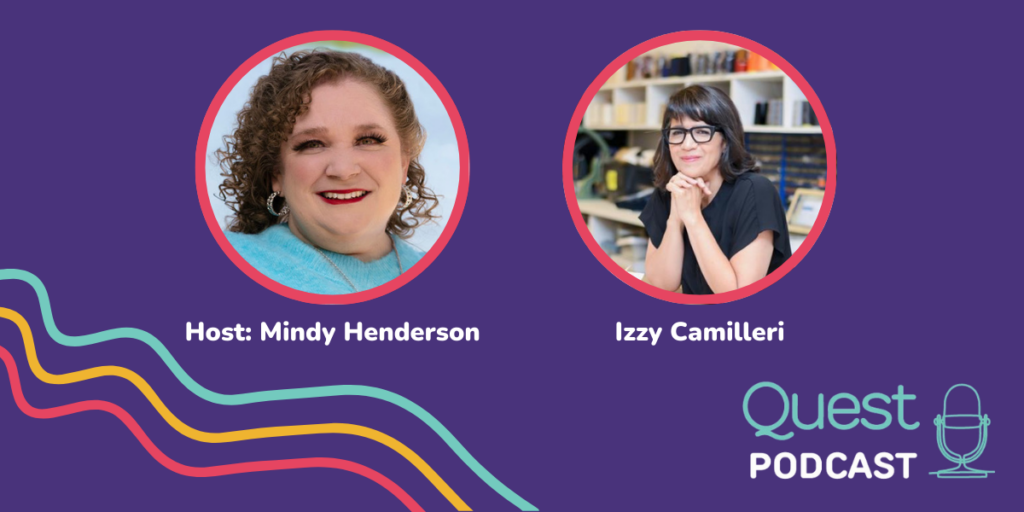
5 Things Advocates Should Know: The Alleviating Barriers for Caregivers Act
By Shannon Wood | Monday, November 17, 2025
November is National Family Caregivers Month, and it is important to MDA to uplift the importance of family caregivers in the neuromuscular community. Due to decades of underinvestment in paid care, and with welcome breakthroughs in research leading to longer lives for many, the often-invisible frontline of family caregivers is under increasing pressure as the need for care overwhelms the availability of services. As part of its efforts to support family caregivers, MDA advocates to address the common challenges that family caregivers face through public policy change.
One of the top challenges shared with MDA’s Resource Center by family caregivers is difficulty working with state and federal agencies to get the benefits their loved ones need, whether it be health insurance and home and community-based services through Medicaid or disability benefits like SSI. They report frustrating experiences of invasive, repetitive paperwork, waiting hours to speak to someone, difficulty scheduling in-person appointments – exacerbated by staffing and field office reductions, complicated application processes leading to frequent denials, and more. These hurdles result in barriers to obtaining necessary care and benefits that enable independence. For the neuromuscular community, time is muscle, and families cannot afford to waste hours overcoming bureaucratic hurdles.
Fortunately, there is bipartisan interest in reducing the administrative burdens on family caregivers through the Alleviating Barriers for Caregivers (ABC) Act (H.R. 2491/S. 1227). This November, MDA united advocates from across the country in the nation’s capital to advocate in support of this legislation to reduce bureaucratic red tape in benefits navigation for family caregivers and individuals affected by neuromuscular diseases.
Here are five things to know about the bill:
What does the bill do?
The bill requires the Centers for Medicaid and Medicare Services (CMS), which is the federal agency that provides health coverage through Medicare, Medicaid, and the Children’s Health Insurance Program (CHIP), and the Social Security Administration, which is the federal agency that administers disability benefits like Social Security Disability Insurance and manages Supplemental Security Income (SSI), to review and simplify processes, procedures, forms, and communications for family caregivers to help individuals determine eligibility, enroll in benefits, maintain coverage, and utilize the full benefits available under those programs.
What would the review include?
There are specific goals outlined in the legislation, including:
- Streamlining policies and simplifying procedures, as well as reducing the frequency of providing the same information more than once, completing multiple documents for each agency, or providing information to agencies they already have or could easily obtain from another agency
- Making it easier for family caregivers to work with state and federal agencies by:
- Decreasing call waiting times and ensuring agencies provide timely answers.
- Improving website accessibility.
- Improving timely access to in-person appointments or meetings.
- Providing translation or interpretation services and improving the relationship between family caregivers and agencies, such as through regular meetings with family caregivers and individuals eligible for, filing for, or receiving benefits.
Importantly, the legislation requires that agency officials must seek input from family caregivers, including caregivers with disabilities, and individuals filing for or receiving services in conducting the review, ensuring that people affected by neuromuscular diseases are actively involved in developing solutions.
Who supports the bill?
The bill was introduced by Senators Ed Markey (D-MA) and Shelley Moore Capito (R-WV) in the Senate, and Representatives Kat Cammack (R-FL) and Seth Magaziner (D-RI) in the House of Representatives. The bill enjoys broad bipartisan support in both chambers.
Where is the bill in the legislative process?
The bill has been introduced in the second session of the 119th Congress in both chambers and referred to the relevant committees for further action. In the House, it has been referred to both the Ways and Means Committee, which is responsible for overseeing Social Security issues, and the Energy and Commerce Committee, which oversees health issues. While committee activity largely stalled during the government shutdown, it has started to pick back up with the reopening of the government. Hearings on the legislation have not yet been announced.
What can I do to garner support?
Prior to committee activity, which is expected to pick up with the government reopening, it is important to have as many bipartisan co-sponsors on the legislation as possible. Reach out to your Senators and Representative and let them know why supporting family caregivers is important to you and how administrative burdens related to caregiving responsibilities have impacted your life. Urge them to co-sponsor the legislation (H.R. 2491/S. 1227). If your member is already a co-sponsor of the Senate or House bill (you can check here for the House and here for the Senate), share your thanks and urge action!
Are you interested in engaging with MDA Advocacy on caregiving or other issues? Join our Action Network or contact advocacy@mdausa.org. Share your caregiving story with us to better inform our advocacy work on the ABC Act and other caregiving issues. We will never share your story without your permission.
Next Steps and Useful Resources
- Urge them to co-sponsor the legislation (H.R. 2491/S. 1227). If your member is already a co-sponsor of the Senate or House bill (you can check here for the House and here for the Senate), share your thanks and urge action!
- Are you interested in engaging with MDA Advocacy on caregiving or other issues? Join our Action Network or contact advocacy@mdausa.org. Share your caregiving story with us to better inform our advocacy work on the ABC Act and other caregiving issues.
- MDA’s Resource Center provides support, guidance, and resources for patients and families. Contact the MDA Resource Center at 1-833-ASK-MDA1 or ResourceCenter@mdausa.org
- Stay up-to-date on Quest content! Subscribe to Quest Magazine and Newsletter.
Disclaimer: No content on this site should ever be used as a substitute for direct medical advice from your doctor or other qualified clinician.




